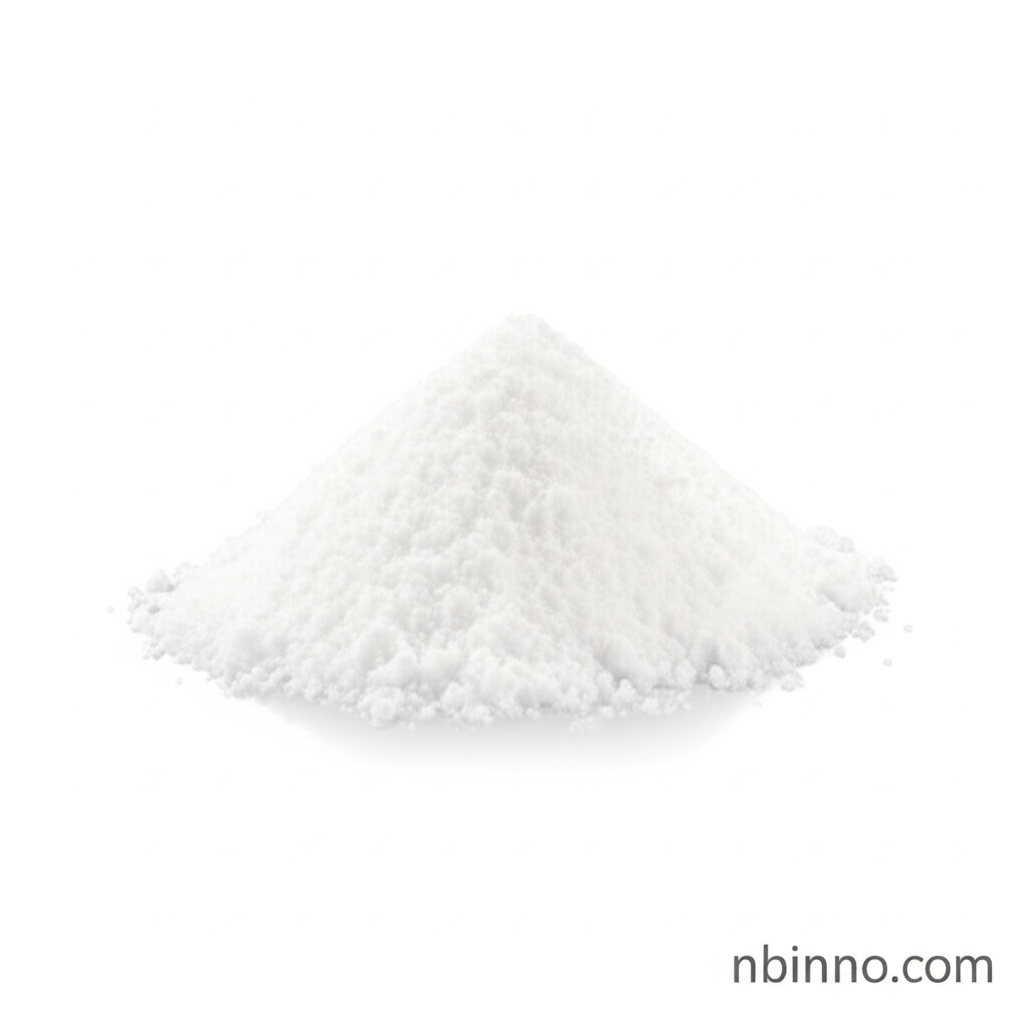Sulfamethazine CAS 57-68-1: Properties, Applications, and Veterinary Uses of a Key Sulfa Drug
Discover the critical role of Sulfamethazine in animal health, from its antibacterial mechanisms to practical veterinary applications.
Get a Quote & SampleProduct Core Value

Sulfamethazine
Sulfamethazine, identified by CAS number 57-68-1, is a crucial sulfonamide antibiotic presented as a white or almost white powder. It is widely employed in veterinary medicine for its efficacy in preventing and treating a range of bacterial infections in livestock and poultry. Its primary mechanism of action involves the inhibition of bacterial folic acid synthesis, a vital process for microbial growth and replication. This makes it an effective agent against pathogens causing conditions like avian cholera, avian typhoid, and coccidiosis. The compound exhibits broad-spectrum antimicrobial activity, targeting both Gram-positive and Gram-negative bacteria, and is also utilized for analysis and testing in veterinary diagnostics.
- Learn about the sulfamethazine antibacterial spectrum to understand its wide-ranging efficacy against various pathogens.
- Explore the detailed sulfamethazine mechanism of action, focusing on how it disrupts bacterial folic acid synthesis.
- Understand the common sulfamethazine uses in poultry for treating diseases like coccidiosis.
- Be aware of potential sulfamethazine adverse effects in animals, ensuring safe administration.
Product Advantages
Broad-Spectrum Efficacy
Sulfamethazine offers broad-spectrum antibacterial activity, making it effective against a diverse range of Gram-positive and Gram-negative bacteria, essential for combating various infections.
Targeted Bacterial Inhibition
It specifically targets and inhibits bacterial folic acid synthesis, a critical pathway for microbial survival, providing a precise mode of action.
Cost-Effective Veterinary Solution
As a well-established sulfa drug, Sulfamethazine provides a cost-effective solution for common bacterial diseases in livestock and poultry, supporting animal health management.
Key Applications
Avian Disease Treatment
Essential for managing avian cholera and typhoid, providing vital support in poultry farming.
Coccidiosis Control
Highly effective in treating coccidiosis in chickens and other livestock, a common parasitic disease affecting the intestines.
General Bacterial Infections
Addresses a range of bacterial infections in cattle, swine, and other animals, contributing to overall herd health.
Veterinary Diagnostics
Used in veterinary analysis and testing, aiding in the accurate diagnosis and monitoring of animal health conditions.
